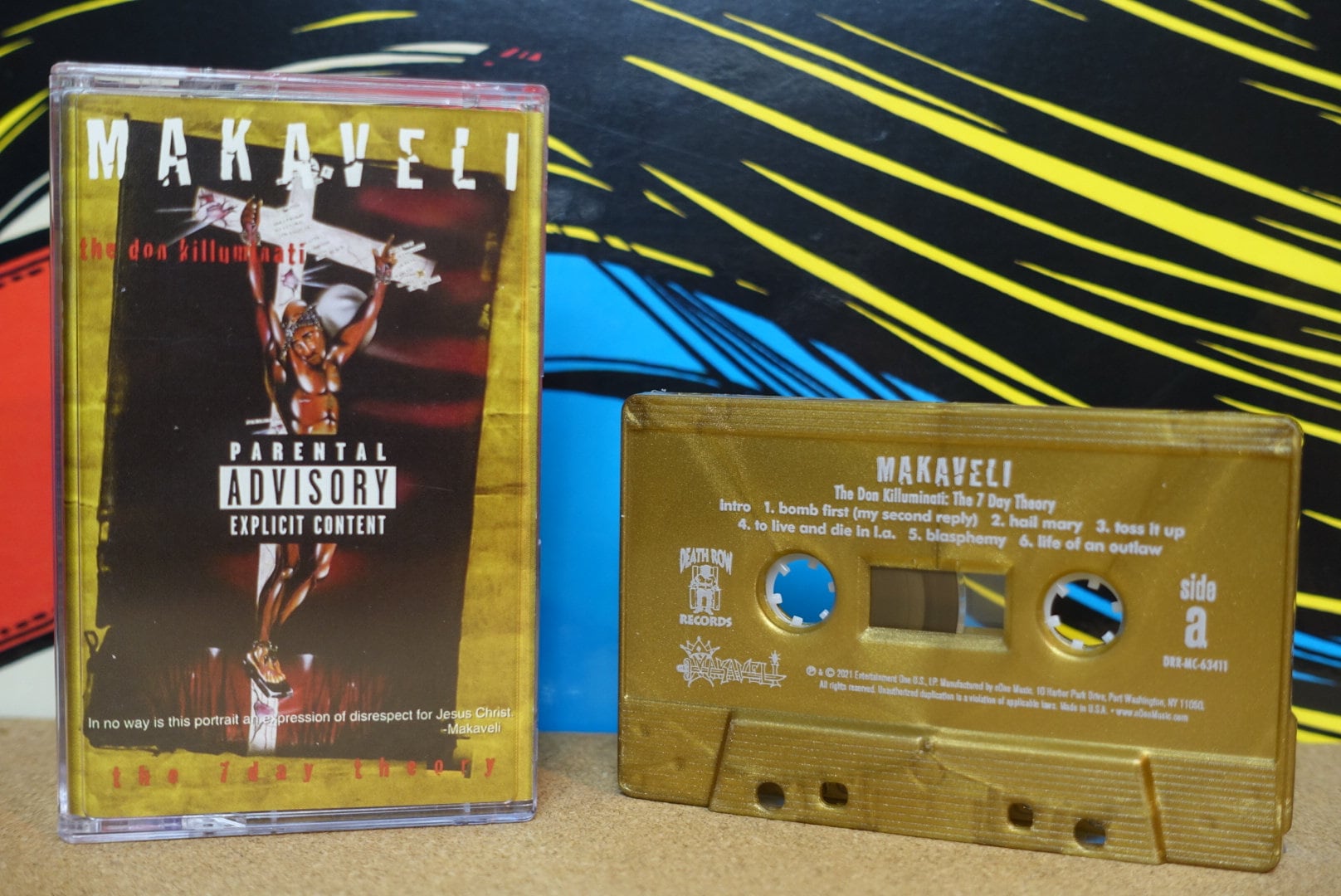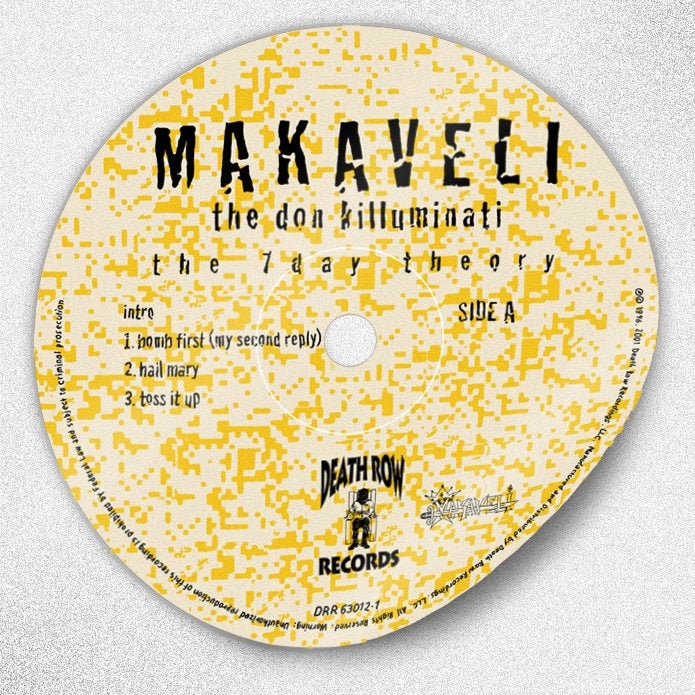

- MAKAVELI ALBUM COVER WITHOUT ADVISORY STICKER UPDATE
- MAKAVELI ALBUM COVER WITHOUT ADVISORY STICKER FULL
MAKAVELI ALBUM COVER WITHOUT ADVISORY STICKER UPDATE
As a group that didn’t start catching on until they ratcheted up the irreverent sex lyrics, rapper/promoter/label head/mastermind Luke Campbell considered 2 Live Crew a booty-shaking equivalent of old-school Black comedy and party records, an ’80s hip-hop update of Blowfly and Rudy Ray Moore’s classics of dirty underground music.
MAKAVELI ALBUM COVER WITHOUT ADVISORY STICKER FULL
The Miami bass stars were a regional phenomenon in the mid-to-late ’80s, but once their 1989 album As Nasty As They Wanna Be hit shelves, the full force of the music censorship controversy came down on them, making them a nationwide cause célèbre and double-platinum seller on an indie label. This, of course, is where 2 Live Crew come in. By decade’s end, hip-hop had become such a high-profile target that gangsta icon Ice-T made it one of the big conceptual centerpieces of his 1989 album The Iceberg / Freedom of Speech… Just Watch What You Say. and Def Leppard seem like toddler stuff to the moral panic crowd: sex, violence, and Black anti-authoritarian politics? Watch the fuck out. With the strong crossover success and even stronger media controversy around N.W.A’s 1988 album Straight Outta Compton, the censors had a new target that made the likes of W.A.S.P. Yet once all the dust was settled and the RIAA agreed to start using an “explicit lyrics” warning label on album covers, a new threat had emerged to potentially corrupt the precious minds of mid-American youths. The PMRC’s original “ Filthy 15,” a list of songs as innocuously suggestive as Madonna’s “Dress You Up” and as deliberately occult as Mercyful Fate’s “Into The Coven,” spanned a surprisingly wide range of pop, R&B, and rock acts. Don’t want to hear Donna Summer moaning? Just turn to adult contemporary.īut something strange happened on the way to the Parental Advisory sticker.

If a former Beatle and his Grammy-winning drinking buddy could get away with it, why try to make a big deal about it? With the orgasmic sounds of disco, the undisguised rawness of funk, and the confrontational bluntness of punk carving new listener group niches throughout the decade, there were more possibilities to hear undiluted expression - and more possibilities to flat-out avoid it. Just leave the dirty words off the airwaves and let the market correct the rest.īy the time the rock and pop markets were becoming too lucrative to be condescended to in the ’70s, f-bombs started slipping through the grooves and making it to record shelves largely unimpeded. Lenny Bruce might’ve been public enemy #1 for decency fetishists at the turn of the ’60s, but by the end of the decade saying “motherfucker” on a record was an issue left up to the label and the retailers they dealt with. How did we get to the point where dirty music was considered a major political priority? Recorded obscenity and “ party records” were an issue dating way back - way way back - before Congress figured they were worth legislating. As absurd as it sounds today - when school shootings and climate change are more accurately diagnosed as major threats to today’s youth - it’s time to look back at what, with hindsight, is one of the more aggravating moral crusades of the late 20th century, a bipartisan effort to target popular culture on behalf of The Children. You want to talk about “cancel culture”? The Parental Advisory sticker as we know it turns 30 today, as does the first album to officially receive its stamp of disapproval, 2 Live Crew’s Banned In The U.S.A.


 0 kommentar(er)
0 kommentar(er)
